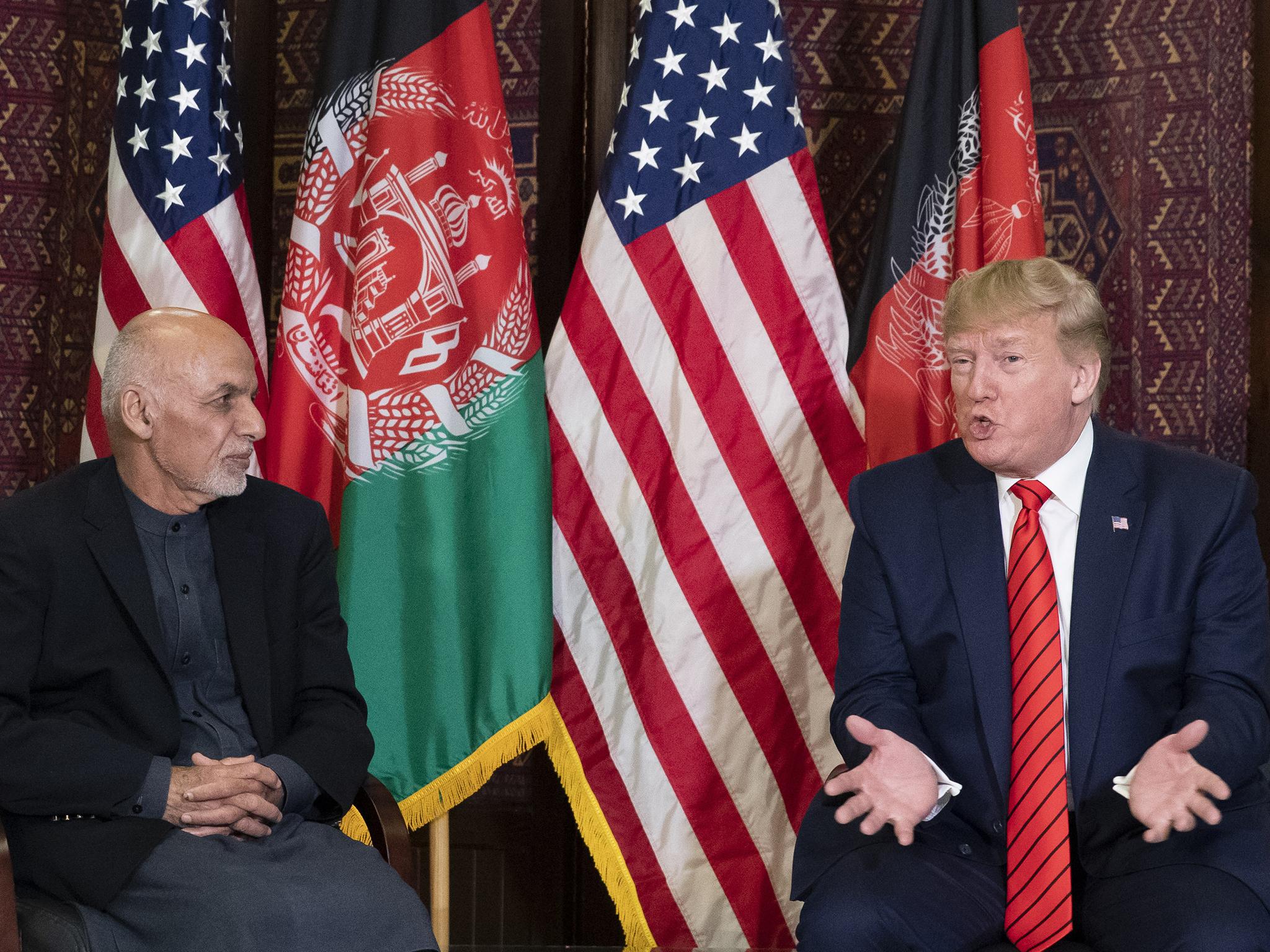Taliban say Afghanistan peace deal with US will be signed by end of the month
American negotiator is 'cautiously optimistic' as senior Taliban leader says talks have concluded

Your support helps us to tell the story
From reproductive rights to climate change to Big Tech, The Independent is on the ground when the story is developing. Whether it's investigating the financials of Elon Musk's pro-Trump PAC or producing our latest documentary, 'The A Word', which shines a light on the American women fighting for reproductive rights, we know how important it is to parse out the facts from the messaging.
At such a critical moment in US history, we need reporters on the ground. Your donation allows us to keep sending journalists to speak to both sides of the story.
The Independent is trusted by Americans across the entire political spectrum. And unlike many other quality news outlets, we choose not to lock Americans out of our reporting and analysis with paywalls. We believe quality journalism should be available to everyone, paid for by those who can afford it.
Your support makes all the difference.The Taliban have said that a peace deal with the United States will be signed by the end of the month, with the top US negotiator describing himself as “cautiously optimistic” about the process.
Mullah Abdul Salam Hanafi, a senior Taliban leader and member of the political commission in Doha, Qatar, said in a video message shared with journalists that after negotiations “both sides have initiated the final draft of the peace agreement. Now talks are concluded”.
This is the first formal statement released by the Taliban since the United States announced a peace deal with the movement on Friday.
Mr Hanafi said “both sides have agreed to sign the agreement by the end of this month,” after making a “favourable environment before signing of the agreement”. What Mr Hanafi appears to be describing is what US negotiators and Afghan government officials are calling a period of reduced violence that approximates a cease-fire and will last seven days.
Mr Hanafi gave no further details on what a favourable environment would entail. American and Afghans officials also have been tight-lipped regarding details of the violence reduction.
In his first public comments since the peace talks breakthrough, US envoy Zalmay Khalilzad, the chief negotiator with the Taliban, said he's “cautiously optimistic.”
“But I am realistic enough to know that there are lots of challenges ahead,” he added.
Mr Khalilzad said that while he had received security guarantees from both the Afghan government and the Taliban, the potential remained for “spoilers” both inside Afghanistan and outside the country to upend months of diplomatic progress.
“I believe that, maybe better than any time in the last couple of decades, there is an opportunity for peace,” he said, speaking in Islamabad on Monday at a United Nations conference on refugees marking 40 years of conflict in Afghanistan.
Some Afghan officials said the reduced violence would be countrywide and all parties to the conflict would halt planned offensive operations. The officials spoke on the condition of anonymity because they were not authorized to discuss the deal publicly.
There is no official word on when the reduction in violence will begin, but it's expected to be sometime this week.
If that reduction in violence holds, it would be followed by the signing of a broader US-Taliban agreement under which thousands of US troops would withdraw and the Taliban would begin direct negotiations with Afghan leaders.
Mr Hanafi mentioned talks between the Taliban and the Afghan government, but he said such a step would only be taken after a mass prisoner exchange.
“When the process of releasing of 5,000 [Taliban] prisoners ... is completed, then intra-Afghan talks will begin,” he said. The Taliban prisoners would be exchanged for 1,000 members of the Afghan security forces, according to Mr Hanafi.
But Afghan officials have said previously that the exchange would be discussed during the intra-Afghan talks and not before.
The broader US-Taliban agreement is nearly identical to one negotiated in September that was cancelled by Donald Trump after a Taliban attack that killed a US soldier before it could be signed. The deal would begin the withdrawal of US troops and require the Taliban to pledge not to harbour terrorist groups with the intention of attacking the West.
While a deal has been reached, US officials have cautioned it remains conditional on the outcome of the period of reduced violence.
In a statement released by Ashraf Ghani's office Saturday, the Afghan president said “the agreement” will be finalised next week and will have “conditional content”.
At an annual security conference in Munich on Saturday, Mr Ghani took a combative tone when asked about a possible role for the Taliban in a future Afghan government.
“If the Taliban had support, why would they be so afraid of elections,” he said.
“I challenge them: Put your best candidates in Helmand and see whether you win,” he continued, referring to an Afghan province considered a heartland of Taliban support. “If people elect you dog catcher, then I would say you really have a power base. Guns are not the basis of power.”
The Washington Post
Join our commenting forum
Join thought-provoking conversations, follow other Independent readers and see their replies
Comments